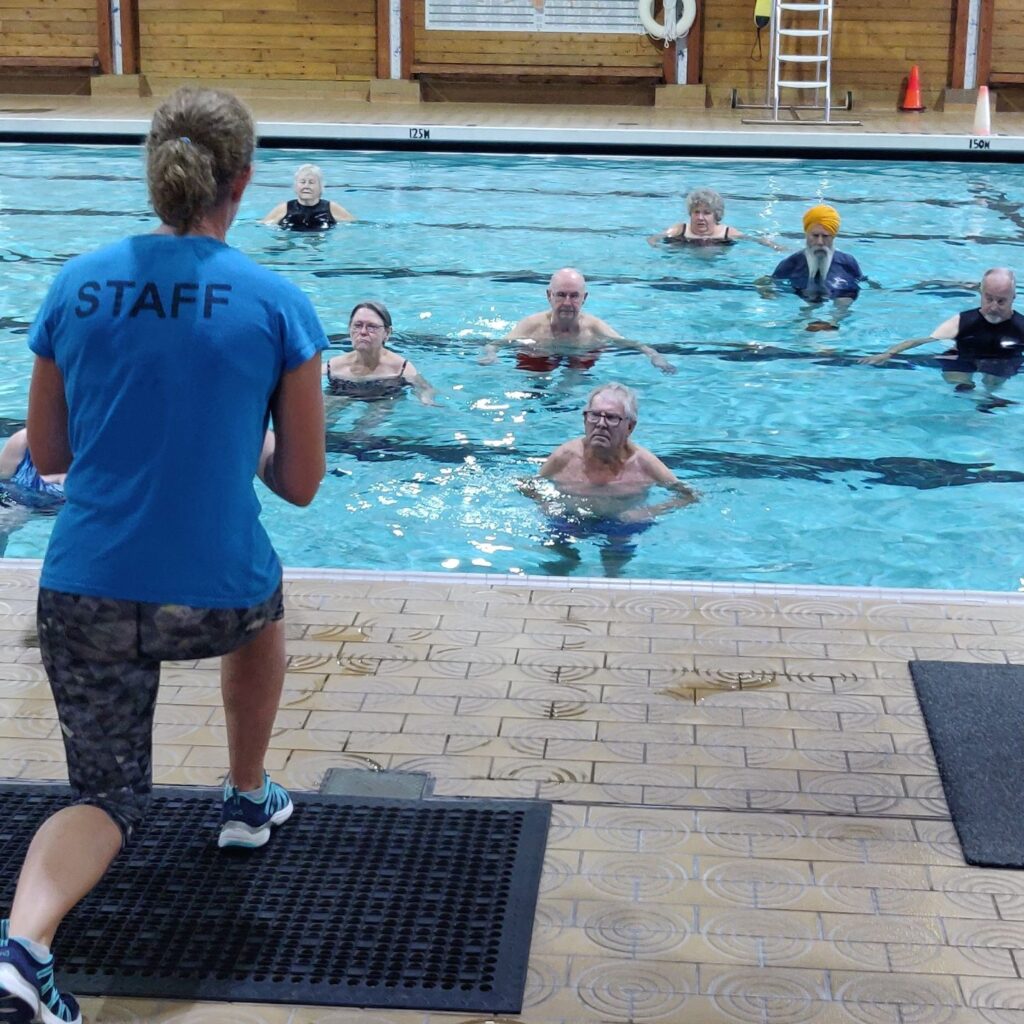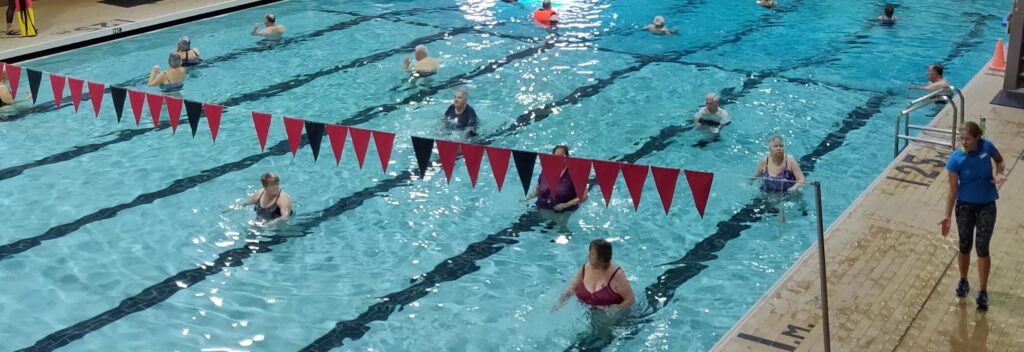The day that the pandemic hit, the Summerland pool closed, and along with it, Recope a non-profit organization that helps many locals regain or improve mobility through water therapy.
For many charities, a disaster of this proportion and duration might have meant permanent closure. But not Recope, which — mirroring its ethos to help others help themselves – worked to come through the pandemic with a stronger, healthier and more sustainable operating model.

Jean Munro, Recope’s executive director, says they were fortunate to have already been working on stabilizing their organization well before the pandemic. “We knew we really needed to move from being kitchen tabletop management to a more professional organization.”
Before the pandemic, the Recope team of an occupational therapist, registered nurse, fitness instructors, care attendant and volunteers hosted land and pool classes three times a week, with over 70 participants per session – including young adults and seniors, people with a wide variety of medical challenges including arthritis, cardiac, neurological or mental health needs and people recovering from or preparing for surgery.
“It’s really about empowering people to take care of their own health through an active lifestyle and teaching them how to do that safely,” says Munro, who adds that for the same cost as a public swim per class people were obtaining mobility assessments, care plans, fitness instructions and much more. “We aimed to be supportive and accessible to everyone.”
But support at this price, while also working towards paying fair wages and retaining staff, was becoming increasingly difficult. Finding a more sustainable model first meant putting more focus on fundraising and eventually led to rethinking their business practices.
In 2018 – 20, the Community Foundation provided advise on building sustainable business models and granted funds so that Recope could hire consultants to examine and help reimagine their organization. “We shifted to a governance style of board and adopted a variety of business tools.” Some decisions were hard to make. “We didn’t want to raise prices creating a barrier to participation, but it was a conversation we had to have and find a way that it didn’t create barriers” says Munro.
Then, in 2020, the pandemic threw a wrench into the plans they were about to roll out. “We had so many people to help, and it was very difficult to do without the water environment,” says Munro of the pool closure. Recope relied on relief funds and switched to virtual classes to provide what support they could.
When the pool reopened, Recope ran many more small classes, each with far fewer participants to accommodate covid health measures. This change led to many unexpected benefits. “The pandemic forced us to raise our fees to survive, but the new model also came with an upside in that small classes enabled us to give more attention to individuals,” says Munro.
Running more classes also meant a few more hours and stability for staff. “It’s hard to hire for a few hours a week, but now with more classes, it’s a better fit for everyone,” says Munro. “People accepted that we had to double our fees given the new model. But they also knew they were benefitting from being less crowded and getting more individual attention.”
Of course, even with these unforeseen benefits, 2020/21 hasn’t been easy. “We have done everything we can to still ensure that anyone who wants to come can come, but we’ve lost some clients, who can’t be here because of the pandemic and that’s very hard,” says Munro. Sick leave and childcare for staff are bigger issues than ever, and future unknowns, such as the pool closing for reconstruction, always loom. But preparing for the future is key. “My advice to others who may want to put off going through the process of building a new business model is to take the plunge. Look closely at your organization’s values and nonnegotiable activities, but be open to making radical changes to ensure sustainability and being able to focus on your mission over the long run.” Just as Munro advises people working to improve their mobility, she says: “The hard work of change is worth it.”


